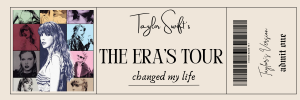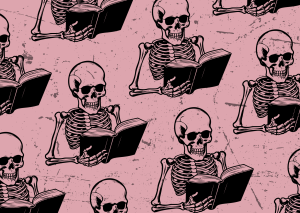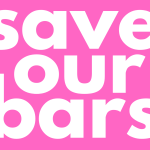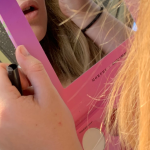By Alana Riley
If the past year has taught us anything, it’s that plastic is pretty shit. Our national recycling scheme (ie. those pesky yellow bins on your curbside) doesn’t seem to be making the dent it used to. Of course, we’ve known plastic was shit for a long time, but 2018 revealed some startling truths that have been left undiscussed for far too long. The Australian National Waste Report, for example, revealed in November that of the 3 million tonnes of plastic produced in Australia each year, only 12% of it actually ended up in a recycling bin. That’s roughly 2.64 million tonnes of plastic left to landfill (or our oceans).
So, if the past year has taught us anything, it’s that encouraging recycling is not enough anymore. Recycling was, in hind sight, never enough.
Glass Magazine spoke to QUT Guild Environmental Officers Ben English and Laura Harland for their take on the plastic-crisis we’re currently facing.
“We attempted to ban plastic bags, but it just caused businesses like Coles to start charging 10c per bag,” Ben said. “We’re giving money to the corporation and worsening the plastic crisis.”
Ben said that the recycling systems in Australia are insufficient, with the “just chuck it in the yellow bin” mentality not cutting it anymore.
They said the time spent using single use plastics, such as a straw or plastic lining of a coffee cup, is “disproportionate to the many thousands of years it will take for that plastic to break down.”
“It’s going to take a uni wide effort to stop selling single use plastic completely.”
So, what’s next?
In 2018, Queensland rolled out a plastic-bag ban state-wide, steel straws entered the mainstream and Coca-Cola began talks to phase out plastic straws. Plastic-free living is on the horizon and progress is well under way. But there’s more to living a plastic-conscious lifestyle than just skipping a straw when you get your bi-weekly juice.
For students, reducing plastic usage can seem daunting and can be misconceived as a big and expensive commitment. But it’s really not. There are a lot of ways to easily and economically cut your plastic usage down.
Laura said it can be easier than you think to start using your own containers and utensils when you go out, though being aware of the packaging your food comes in is important too.
“I try and buy naked foods where I can. Markets are a good place to find unwrapped cheap fruit and veg and by doing this, you’re probably going to be eating healthier too,” Laura said.
“If you need to buy something new, look into plastic free alternatives for those products, or even DIY recipes … a DIY product I’m most proud of is a deodorant I made using the recipe from Biome’s website. It works a treat for an afternoon bike ride, or a long day of protesting.”
Some easy ways to jumpstart your plastic-free living are; visiting the Biome website for a whole range of plastic free alternatives, shopping at whole food stores such as The Source in West End, or taking a tote down to your local farmers market for some cheap fruit and veg. To get more involved in the environmental happenings on campus, you can also chuck Ben and Laura an email at environment@qutguild.com







